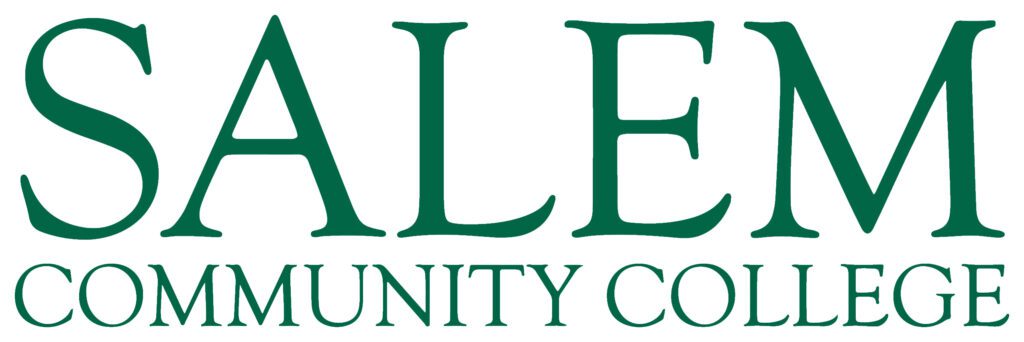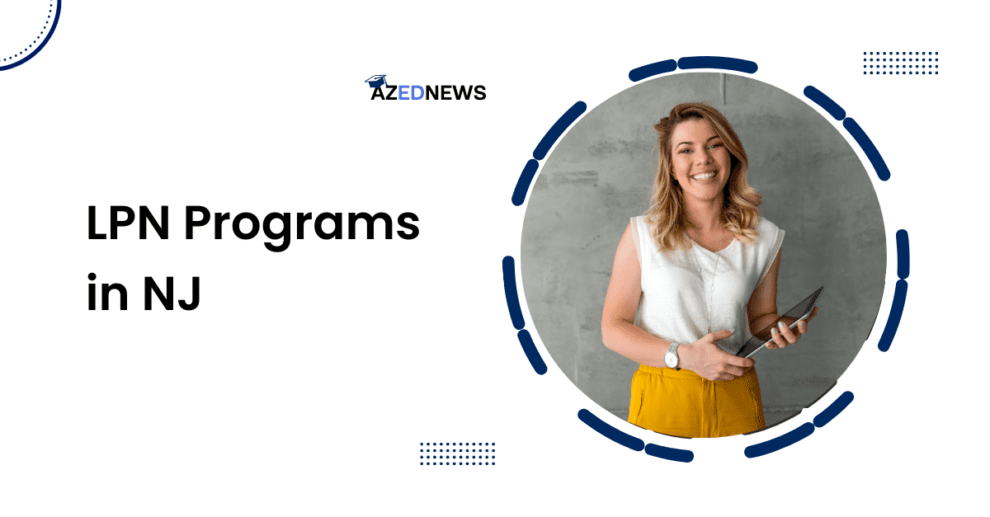If you are currently seeking information about LPN programs in NJ, you are in the right place. The healthcare business has seen a significant increase in demand in recent years. Especially for licensed practical nurses (LPNs).
Table of Contents
The United States Bureau of Labour Statistics predicts a 5% increase in LPN demand by 2032 which emphasizes their critical position in healthcare teams.
What is LPN?
LPNs, also known as licensed vocational nurses (LVNs) in jurisdictions such as California and New Jersey perform critical patient care functions. These tasks include giving prescriptions, taking vital signs, changing wound dressings, and assisting patients with activities of daily living (ADLs) like bathing, dressing, and eating. LPNs, unlike certified nursing assistants, can give drugs as directed by a registered nurse (RN).
LPNs work in a variety of healthcare settings, such as hospitals, mental health facilities, retirement homes, and community care centers. The growing demand for LPNs in these diverse contexts demonstrates the profession’s promising and gratifying character. If you are in Chicago and looking for LPN programs, check out our article on the Best LPN programs in the Chicago.
Eligibility Requirements for LPN in New Jersey
Getting admission to LPN programs in NJ is easy. However, the prospective LPN students must meet the qualifications and conditions set forth by their selected educational institution. Admission criteria often include:
- High School diploma or GED certificate
Candidates must have a high school diploma or a General Education Development (GED) certificate to be eligible for LPN programs.
- Basic Life Support (BLS) or CPR Certification
Many programs require applicants to have current BLS or CPR certifications.
- Medical profession Exposure
Some programs prefer applicants with prior exposure or experience in the medical profession.
- TEAS (Test of Essential Academic Skills) Score
Admission to specific schools may need an ideal TEAS exam score.
Additional requirements often include a background check, drug screening, current immunizations, and a physical examination performed by a healthcare provider.
Aspiring LPNs must conduct extensive research and understand the entrance requirements of particular programs to assure compliance with specified prerequisites and GPA levels, which might vary between universities. Some of the top universities and colleges with LPN programs in NJ are below:
Top 15 LPN Programs in NJ
1. Holy Name Medical Center, Teaneck

Holy Name Medical Center’s practical nursing education helps students succeed in nursing. The course thoroughly covers all essential nursing care aspects and encourages students to cooperate and learn via experience.
This 12-month New Jersey LPN program is available day and night. The curriculum has four semesters: first (15 weeks, 255 class hours, 90 clinical hours), second (15 weeks, 180 class hours, 270 clinical hours), third (9 weeks, 135 class hours, 150 clinical hours), and fourth (7 weeks, 75 class hours, 135 clinical hours).
Classroom training will teach you concepts, while clinical hours will let you apply them. Graduates can work as entry-level practical nurses or pursue nursing degrees.
2. Best Care College, East Orange

Best Care College prepares LPNs to understand diversity and cultural differences while caring for the sick and needy. The college helps students accomplish professional goals and contribute to the community.
The 50-week practical nursing course is offered day and night. The curriculum offers 1,488 program hours divided into four levels: I (375), II (375), III (369), and IV (369). Your study will begin with nursing basics and progress to advanced pediatrics, geriatrics, and leadership. Scheduled clinical sessions in various healthcare settings provide hands-on experience. Graduation requires 80% in each nursing topic.
3. Vineland-based Rowan College South
Rowan College South Jersey, a popular LPN school in NJ, is spearheading nursing education reform. Modern technology helps students succeed and create well-rounded personalities at college.
A one-year practical nursing course has 34 credits, divided into program (24 credits) and general education (10 credits). Nursing courses cover surgical procedures, health and nutrition, human anatomy, pharmacology, and psychology. The college arranges clinical sessions at hospitals, nursing homes, and private clinics for practical experience. Classrooms provide academic understanding. You must get a “C” in every nursing subject to graduate.
4. Jersey College, Teterboro & Ewing
Jersey College’s LPN curriculum is well-designed and combines theory and hands-on instruction. The course thoroughly teaches nursing and surgical care to help you become a healthcare professional.
Four 12-week terms make up the practical nursing program. Both day (44-week) and evening (66-week) programs offer 1,459 hours of instruction. Day classes are Monday to Friday, while evening classes are Monday to Thursday. Theory lessons will clarify concepts, while clinical sessions will give you practical experience. You can work as an entry-level practical nurse in hospitals, nursing homes, rehabilitation centers, and infirmaries after graduating. Higher nursing education is another option.
5. Monmouth County Vocational School District, Neptune
If you want to become an LPN in New Jersey, try Monmouth County Vocational School District’s practical nursing program. For five years, the institution has had a high NCLEX-PN pass rate, proving its outstanding instruction.
This practical nursing course has three parts and two formats: expedited (10.5 months) and extended pace (15 months). Phase I helps you understand nursing foundations, while phase II teaches surgical and medical concepts in the classroom and clinic. Phase III covers advanced nursing skills. Riverview Medical Centre, Bayshore Care Centre, and Neptune Medi Centre offer hands-on training.
6. Salem Community College, Carney’s Point

Salem Community College offers specialized LPN training with recent facilities and technology, including a simulation lab. SCC’s 44-week practical nursing certificate program has four 10-week semesters and one 4-week session. Classroom lectures and simulated lab training comprise the 36-credit curriculum.
You will study primary nursing care, pharmacology, and other healthcare topics to improve your nursing skills. Clinical experience at various healthcare facilities will also be provided. After finishing the course, you can give patients better treatment. Also, you can take the NCLEX-PN and get your practical nursing license.
7. Moorestown/Iselin Lincoln Technical Institute

Lincoln Technical Institute emphasizes collaborative projects and experiential learning to engage students. Besides academics, the institute offers many community-focused programs to assist nursing students become better people.
Practical nursing is offered in two formats: day (52 weeks) and evening (104 weeks). The 1500-hour program covers nursing fundamentals, physiology and psychology, surgical nursing, pharmacology, personality development, diet and nutrition, pediatrics, prenatal care, and leadership.
Legal and ethical aspects of nursing are also included throughout the course to prepare you for the ever-changing healthcare profession. Lab practical, clinical room exercises and clinical sessions will ensure your complete professional growth by handling the practical aspects of your course.
8. Camden County College
Camden County College’s LPN program emphasizes job-ready skills and experience learning for nursing students. Technical skills are also necessary for a successful healthcare job, so the college emphasizes these.
Practical nursing requires 51 credits over four semesters. The first semester (13 credits) covers nursing basics and medical terminology, while the second semester (14 credits) covers pharmacology and psychology. Semester III (14-credit) and semester IV (10-credit) cover health, nutrition, and microbiology and prepare you for the NCLEX-PN. The college partners with several healthcare facilities to give students clinical experience.
9. Ocean County Vocational Technical School-Toms River
The Ocean County Vocational Technical School is dedicated to training nursing students well. Its LPN program teaches students practical skills and moral and professional qualities needed for a successful healthcare career.
Every September, a 10-month Practical Nursing program begins. The school keeps class sizes small for personalized attention. About 40% of the curriculum hours are for theoretical and lab work, while 60% are for clinical experiences. Hampton Ridge, Goddard Schools, Trenton Psychiatric Hospital, Southern Ocean Centre, Ocean Medical Centre, and Community Medical Centre are among the clinical venues where you will obtain practical training under experienced instructors.
10. Hackensack Eastwick College
Eastwick College’s LPN program’s rotational clinical approach helps students experience real-world work. The college changes its curriculum, and dedicated faculty assist students learn faster.
Day (12-month) and evening (21-month) practical nursing diplomas are available. The 85-quarter-credit program contains four-day and seven evening periods.
The bilingual practical nursing associate degree program is available in day (18-month) and evening (27-month) formats. The 118-quarter-credit course contains six-day and nine evening periods. Training will take place in healthcare-themed classrooms. Bilingual nursing students must complete 432 hours of ESL in addition to their nursing coursework.
11. Middlesex County Vocational & Technical School, East Brunswick
Middlesex County Vocational & Technical School offers scientifically-based practical nursing training that gives students conceptual and practical understanding. The industry’s close engagement with the institution helps nursing students learn about healthcare trends.
This 15-month, day-time New Jersey full-time LPN program begins in February and September. The curriculum includes human anatomy, psychology, pediatrics, microbiology, nutrition, surgical nursing, behavioral science, and more. Your training will include six hours of classroom instruction Monday through Friday and clinical sessions led by trained instructors in various healthcare settings. Graduates can give holistic patient care to the sick and disadvantaged.
12. Essex County College-Newark
Essex County College boasts a great infrastructure of classrooms, simulation rooms, and labs for nursing students. The college emphasizes teamwork, collaboration, and leadership in its instructional environment.
Every January, the 1-year LPN program begins. The 49-credit course is taught in four semesters: I (15 credits), II (15 credits), III (9 credits), and IV (10 credits). The course framework effectively blends theoretical, lab, simulation, and clinical education. Graduates can take the National Council Licensure Examination for Practical Nurses (NCLEX-PN) after scoring at least a “C” in each nursing course.
13. Mercer County Technical School Health Career Center, Trenton
The LPN program at Mercer County Technical School Health Career Centre emphasizes developing quality nurses. The center builds a strong conceptual framework and gives students the values and skills they need to succeed in nursing.
A full-time 11-month practical nursing program runs from August to July each year. The three-phase program covers basic and advanced nursing topics to aid learning. Phase I (12 weeks) covers nursing basics, whereas Phase II (17 weeks) covers adult health issues. Phase III (15 weeks) introduces you to expert nursing care. You can work as an entry-level nurse at a hospital, private clinic, nursing home, or infirmary after graduating.
14. Union County College, Plainfield
The LPN program at Union County College strives to make nursing students theoretically strong and practically professional. The program promotes experiential learning and overall growth.
It takes 16 months and 52-53 credit hours to complete this practical nursing program in day, evening, weekend, or distance learning.
Semester I (15 credit hours), semester II (13-14), semester III (12), and semester IV (12) comprise the program. The program’s theory-practice balance was carefully planned. Clinics will provide practical training while schools provide theoretical understanding. Overall, the program prepares you to deliver complete patient care and overcome healthcare issues.
15. Universal Training Institute-Perth Amboy
Universal Training Institute’s LPN program attempts to fill the practical nurse shortage. The Institute refreshes its extensive course content with feedback from stakeholders, including industry leaders.
Day and evening practical nursing programs are available. The nighttime course takes 18 months, while the day program takes 12 months. The 1,196-hour course has five tiers: basic, mild, intermediate, advanced, and actualization. You’ll get customized attention to improve your conceptual knowledge due to the 30:1 student-faculty ratio. The ratio drops to 10:1 during clinical sessions, which is ideal for practical experience under professional teachers.
FAQs
1. How long does it take to become an LPN in NJ?
LPN programs typically last 1-2 years and cover various subjects including pharmacology and psychiatric nursing.
2. How much does it cost to become an LPN in NJ?
As of May/June 2021, tuition for LPN programs in NJ was approximately $37,000, covering course materials, background checks, supplies, uniforms, and the first licensure exam. Tuition may be reduced for students transferring credits into the program.
3. What is the starting salary for an LPN in NJ?
Entry-level LPN salaries in New Jersey range from $25.14 to $34.18 per hour, with variations based on experience and location.
4. What are the requirements to become an LPN in NJ?
Prospective LPNs must complete a program at a vocational or technical school, community college, or private institution, typically lasting a year or more. After completing education and training, passing the NCLEX-PN exam is necessary for licensure by the NJ Board of Nursing.
5. What is the highest-paid nursing specialty in New Jersey?
Certified registered nurse anesthetists (CRNAs) are among the highest-paid nursing specialists in New Jersey, requiring additional certification beyond registered nursing.
Conclusion
Pursuing nursing in New Jersey can be beneficial for students. As it opens the gateway to high-paying jobs and tons of employment opportunities. We have researched and mentioned some of the top nursing schools above in the article. You can be admitted to these LPN programs in NJ and get the degree in hand after accomplishing credits.












Add Comment